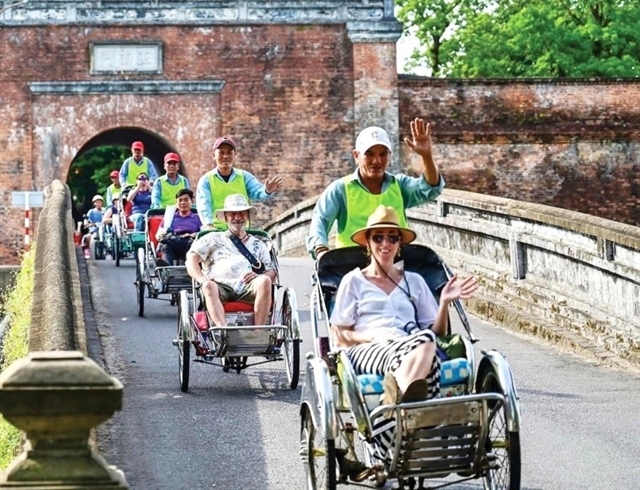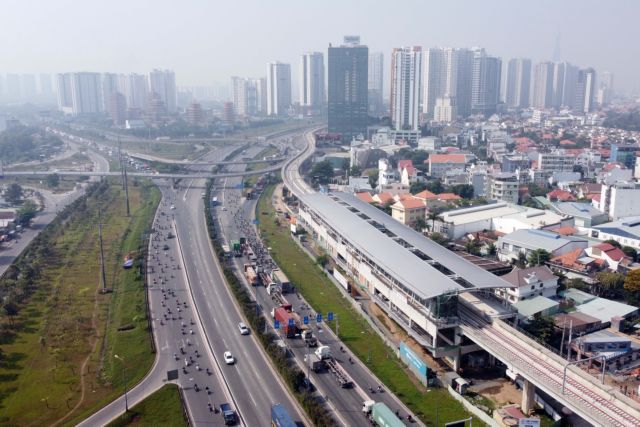 Society
Society

The HCM City People's Committee has asked the Ministry of Planning and Investment and Ministry of Finance to disburse Japan’s official development assistance (ODA) capital from the central budget this year under a valid loan agreement worth VNĐ1.95 trillion (US$85 million) for its first metro line project.

|
| Construction of an elevated station on HCM City’s first metro line. — VNA/VNS Photo Tiến Lực |
HCM CITY — The HCM City People's Committee has asked the Ministry of Planning and Investment and Ministry of Finance to disburse Japan’s official development assistance (ODA) capital from the central budget this year under a valid loan agreement worth VNĐ1.95 trillion (US$85 million) for its first metro line project.
The first metro line project between Bến Thành Market in District 1 and the Suối Tiên Theme Park in Thủ Đức city is facing difficulties in capital-related administrative procedures that are affecting the progress of the project.
The city Management Authority for Urban Railways (MAUR) said ODA capital for the first metro line totals more than VNĐ38.3 trillion ($1.7 billion), including about VNĐ14 trillion ($610 million) from the central budget and the rest from a re-borrowed loan.
By the end of January, more than VNĐ10 trillion ($436 million) of the ODA capital in the central budget for the project had been disbursed. But nearly VNĐ4 trillion ($174 million) has yet to be disbursed under the valid loan agreement and a loan agreement worth $77 million that expired in November last year.
At a meeting in April, Prime Minister Phạm Bình Minh asked the committee and Ministry of Finance to work with the Japan International Cooperation Agency (JICA) about extending the validity of the expired loan agreement for the project. But the expiration date was not changed.
Therefore, the ODA disbursement needs to be done quickly.
The opening of the first metro line has been delayed until next year.
The line has faced many problems since its construction began in 2012, including slow disbursement of funds and a personnel crisis.
With a total investment of VNĐ43.7 trillion ($1.9 billion), the 19.7-km line will have 11 elevated stations and three underground stations through districts 1 and Bình Thạnh and Thủ Đức city and neighbouring Bình Dương Province.
It will have 17 Japanese-made trains with three carriages each that will run at a maximum speed of 110km per hour above ground and 80km per hour below ground.
The city has received three of 17 trains.
More than 87 per cent of the work on the first metro line has been completed, according to MAUR.
The development of the pandemic in the city has also caused multiple difficulties for the project.
A lack of human resources and rising costs have occurred due to providing food and setting up temporary accommodations for workers during the city’s strict lockdown from July 9.
MAUR has urged all of the first metro line project’s contractors to strictly comply with pandemic prevention regulations and make every effort to ensure the progress of the project. — VNS




